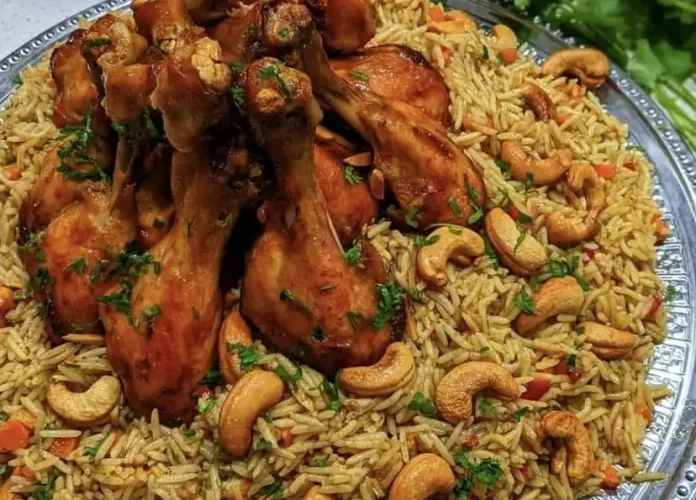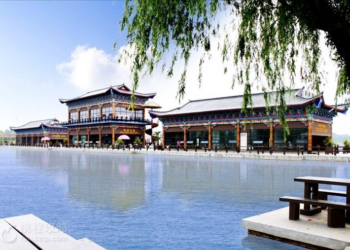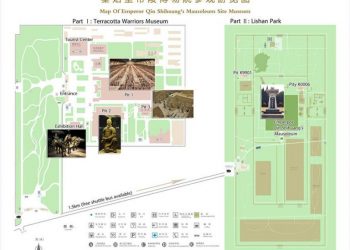China and Saudi Arabia are two very different countries with distinct cultures and histories. China is a large, populous country located in East Asia, while Saudi Arabia is a Middle Eastern country known for its vast oil reserves and Islamic culture.
difference between China and Saudi Arabia is their economies. China has a rapidly growing and diversifying economy, with a large manufacturing sector and a growing middle class. In contrast, Saudi Arabia’s economy is heavily dependent on oil exports, and the country has been working to diversify its economy in recent years.
Culturally, the two countries also differ significantly. China has a rich history and culture, with many ancient traditions still practiced today. Saudi Arabia is known for its conservative Islamic culture, with strict dress codes and gender segregation being common.
Overall, while both China and Saudi Arabia are important players on the world stage, they are very different in terms economies, food and cultures.
In terms of food, China and Saudi Arabia have distinct culinary traditions. China is known for its diverse and flavorful cuisine, with a wide variety of regional specialties, such as Sichuan cuisine, Cantonese cuisine, and Hunan cuisine. Chinese cuisine often features rice, noodles, vegetables, and meats, and is characterized by its use of spices and seasonings.
On the other hand, Saudi Arabian cuisine is heavily influenced by Arabic, African, and Indian cuisines, and often includes rice, lamb, chicken, and spices such as saffron, cinnamon, and cardamom. Traditional dishes include kabsa, machboos, and mutabbaq.
when I first arrived in China with my dad the hardest part was for us was the food. but thankfully when I met my roommate, she was already familiar with hala food and where to find it so it was little bit easy for me, there are still plenty of places to find halal and vegetarian dishes throughout the country. .in China so I recommend to ask and search for the options in map and ask help friends.
For halal food, you may want to focus on cities with a significant Muslim population, such as Xi’an, Lanzhou, and Yinchuan. These cities are home to the Hui ethnic group, who are predominantly Muslim and known for their delicious halal cuisine. You can find numerous halal restaurants and street vendors in these areas, serving dishes like Lanzhou beef noodles, lamb skewers, and Hui-style dumplings.
In larger cities like Beijing, Shanghai, and Guangzhou, halal restaurants can be found in various neighborhoods, particularly around mosques. You can usually identify these establishments by looking for the Arabic script and a sign with a halal certification. Be sure to try some of the local specialties, such as Beijing-style lamb hot pot or Shanghai-style fried beef noodles.
For vegetarians, China offers a variety of meat-free dishes that are both delicious and satisfying. Traditional Buddhist vegetarian cuisine, known as Su Shi (素食), can be found in many cities across the country. The dishes are often prepared with tofu, mushrooms, and other plant-based ingredients, and are known for their delicate flavors and artful presentation. You can find Buddhist vegetarian restaurants near temples or in areas with a strong Buddhist presence.
Additionally, most Chinese restaurants offer several vegetarian dishes on their menus, such as tofu dishes, vegetable stir-fries, and rice or noodle dishes. Look for dishes like Mapo Tofu, eggplant with garlic sauce, and sautéed string beans. Be sure to specify that you do not want any meat or animal-based products in your dish, as some restaurants may use meat-based broths or sauces.
我吃素
When traveling in China, it is helpful to learn a few key phrases to communicate your dietary preferences. For example, you can say “Wǒ chī sù” (我吃素) to indicate that you are vegetarian, or “Wǒ chī qīngzhēn” (我吃清真) for halal food. With a little effort and research, you will be able to enjoy a wide variety of delicious and satisfying halal and vegetarian dishes during your stay in China.
Chinese Food:https://www.istudy-china.com/category/chinese-culture/chinese-food/
我吃清真
In terms of clothing, both China and Saudi Arabia have specific cultural and religious dress codes. In China, traditional clothing such as qipao and hanfu are still worn for special occasions, but modern Western clothing is more common. In Saudi Arabia, men typically wear thobes and ghutras, while women wear abayas and hijabs.
In terms of social interactions, cultural norms also differ between China and Saudi Arabia. In China, politeness and respect for elders are highly valued, and it is common to address people with formal titles and honorifics. In Saudi Arabia, hospitality and generosity are important cultural values, and it is customary to offer guests food and drink.
As for how studying in China can change one’s life, it can be a transformative experience that exposes individuals to a different culture, language, and way of life. Studying abroad can broaden one’s horizons, enhance their cross-cultural communication skills, and provide opportunities for personal and professional growth.
Despite these differences, both China and Saudi Arabia are important players on the world stage and have significant influence in their respective regions. Understanding these differences can help foster better communication and cooperation between the two nations and promote greater understanding and respect for each other’s cultures and values.
NAME: RUAA MOAHMMED ABAKER AHMED ALNOUR
SCHOOL: SOUTHEAST UNIVERSITY IN NANJING CHINA
NATIONALITY: SUDANASE BORN AND LIVES IN SAUDI ARABIA RIYADH
Oops! We could not locate your form.











![[Guangxi], 0 Tuition, 0 Dorm, Bachelor Scholarship](https://news.eduprchina.com/wp-content/uploads/2024/07/南宁1-350x250.jpeg)


























This Post Has 0 Comments